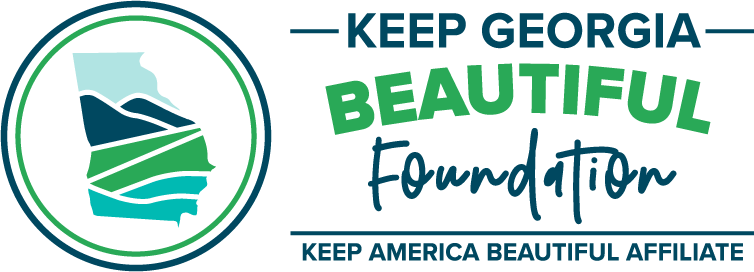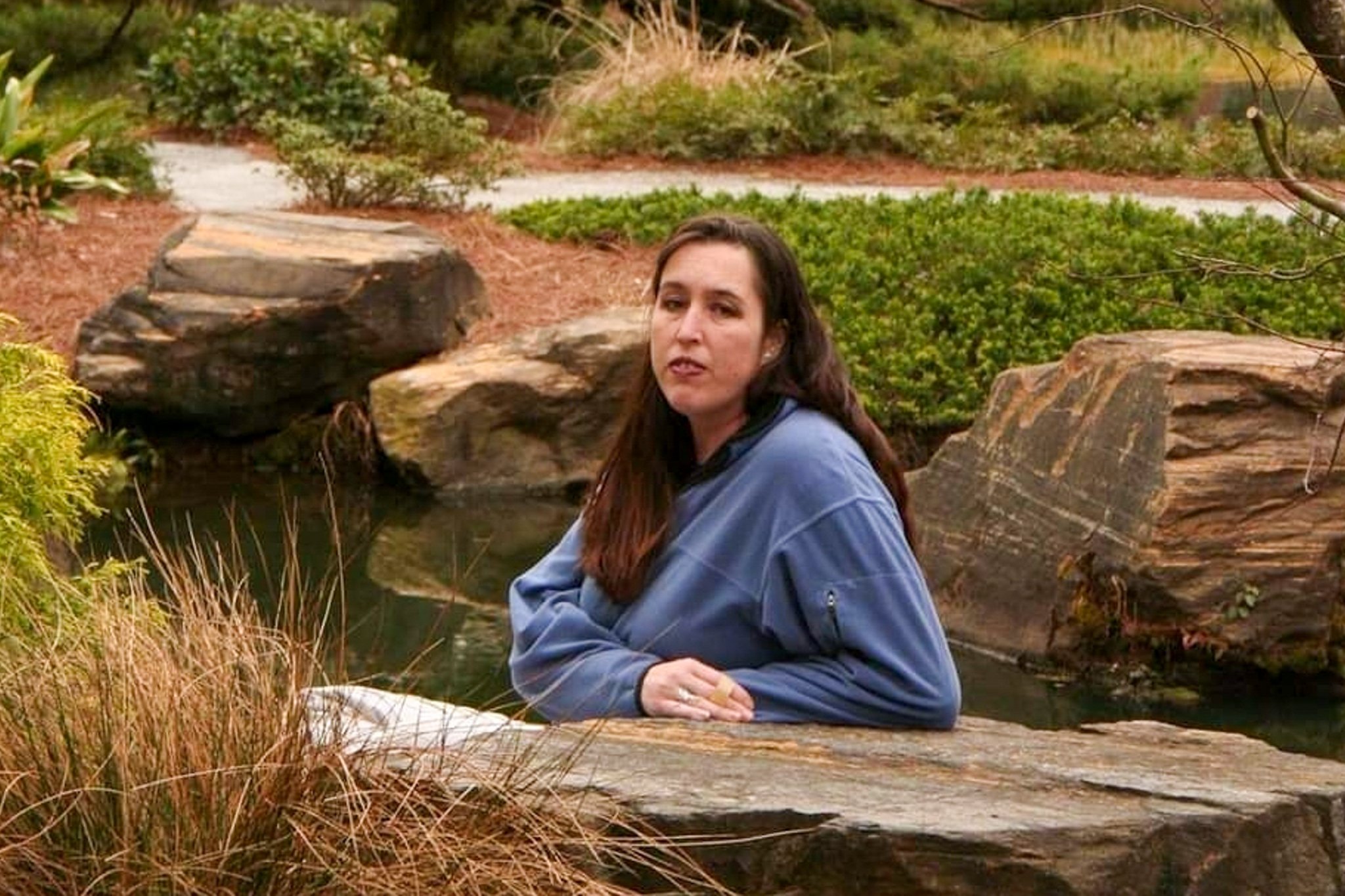Q&A with Apryl Milam, Community Outreach Specialist at Keep Forsyth County Beautiful
Have you ever thought about the life cycle of litter? Join us for a conversation about water quality, storm drain art, and how environmental education improves academic outcomes.
Tell us more about your role at Keep Forsyth County Beautiful. What does a typical day look like for you, and what led you to get involved?
No two days are really alike for me! That's why I love my job. I’ve worked in and around environmental education for almost two decades, but a few years ago, I started here and knew it would be the right fit. A large percentage of what I do relates to in-school field trips, state standards-correlated programming, litter abatement, recycling, and beautification. Most of what I bring to the classroom revolves around water quality, because of our proximity to Lake Lanier and the Chattahoochee. It’s safe to say that most of my time is spent in the classroom.
Have you always been passionate about the environment?
I've always enjoyed being outside, and in my younger years, I worked seasonally in Yosemite and Yellowstone. I did anything from housekeeping to working in the recycling departments, which has come full circle. Then, I moved to Alaska and all the pieces came together. At the time, I worked behind the scenes for an educational-based tourist company. They had a guide cancel for one of their trips and asked me to fill in. It turned out I had a knack for introducing people to place-based learning! I later transitioned to being a full time guide and led participants on week-long trips on the Kenai Peninsula. I understood at that point that I could make all of this into a career. I’m originally from the desert in California, but my husband is from Marietta and we settled here. Waterways have become a big part of my life, and I even named one of our dogs Toccoa.
Speaking of waterways, you recently completed a storm drain art contest in your county. Tell us more about that, and some of your other favorite projects.
’m super proud of our storm drain contest. That seed was planted about a year ago when our former county manager read about a similar contest in Florida. He reached out to our water department and asked if they would sponsor something like that here. They called me and asked if Keep Forsyth County Beautiful could help facilitate. I absolutely loved the idea and jumped in with both feet, and whenever I talk about it, I like to give credit where it’s due. During our pre-planning stages, I had no idea what I was doing, so I scoured the internet and found an established program at the University of North Texas. I reached out to them for best management practices and asked a bunch of questions. I ended up getting a lot of help from a board member of Keep Texas Beautiful, which was fantastic. We were then able to launch our own contest. We asked high school students to create original art to enhance the theme “Only Rain Goes Down The Drain, which will help educate our community about storm water runoff and water quality. We received some awesome submissions, and the art is being installed at Central Forsyth High School, South Forsyth High School and the Cumming City Center. I’ve really loved watching the students put them together with their own personal styles—one girl sketched everything with pencil first, and another did it totally freehand. They both look great. One is called “Salamander Balance”, with two salamanders wrapped around the storm drain, another is “River Fish and Rain Fish”, which illustrates how fragile aquatic ecosystems can be, and the third is “Push Against Litter”, and captures animals pushing a tin can up and out of the drain.
We also have a new project we’re launching to recover and recycle monofilament fishing line. We selected two boat ramps on Lake Lanier, and mounted PVC pipes where people can dispose of their own fishing lines or what they've picked up out of the water. You’d be surprised at how much of that gets left behind. We take the recovered line and mail it back to Berkley Fishing Supply, and they use it to create new fishing line. It’s a really neat full circle program. This is our pilot year, so we just have the two pipes to collect material, but it’s our goal to partner with other agencies around the lake and expand. It’s been pretty popular in Florida and along the South Carolina coast, but not inland as of yet. I’m really excited about what we’ll be able to accomplish with it.
You lead a number of different workshops and learning opportunities for youth in your role. Why do you think it's so important to teach them about sustainability?
In Forsyth County, we have over 53,000 public school students. We’re the fifth largest district in the state, and we have the potential to impact a significant number of kids. Studies show that students introduced to environmental education at an early age have improved academic performance. They’re better critical thinkers, and more confident with their natural leadership skills. We are fortunate that our county leaders recognize and support these types of programs. I get to work with future ecologists, engineers, and the educators, and I love that. Most of our programming starts out with where drinking water comes from. We talk about the path of the Chattahoochee, where it starts and ends. I get all kinds of answers. The other day, a kid actually stood up and told us it ends in Apalachicola, Florida. His dad works with the water treatment facility, so he already had some knowledge there.
Any advice for people looking to make their communities cleaner, greener, or more beautiful?
It’s important to look around and make connections in your community, to get to know your neighbors, local kids, or people you see on the regular at the dog park. If you’re interested in making your neighborhood cleaner and greener, chances are there are other people nearby with similar goals. We can all do meaningful things on our own, but together, we can accomplish so much more. It’s all about collaboration, creating partnerships, and building community. And of course, you should always reach out to your local affiliate. We always have projects and a need for more volunteers!


